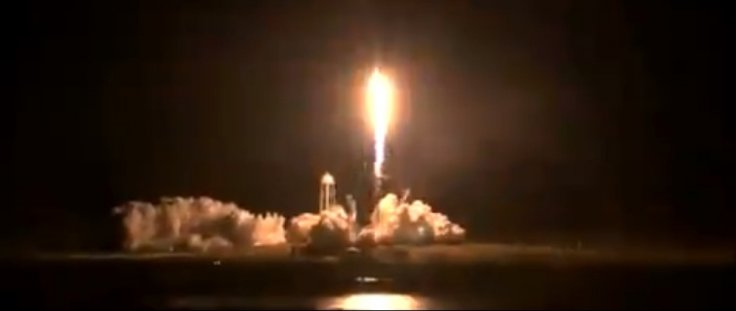It is finally on. Elon Musk's SpaceX launched three Americana and one Japanese astronauts to the International Space Station on Sunday from Florida, marking NASA's first full-fledged mission to send a crew into orbit via a privately owned spacecraft. The crew took off from the Kennedy Space Center in Cape Canaveral, Florida, at 7:27 pm in SpaceX's newly designed Crew Dragon capsule.
This is the second crew to be launched by SpaceX after a two-member crew returned from the orbiting lab three months ago. The crew is due to reach the space station on late Monday and will remain there until spring.
Up Into the Orbit
Liftoff! pic.twitter.com/Unf1ScdVFB
— SpaceX (@SpaceX) November 16, 2020
The Crew Dragon capsule, named Resilience by its crew keeping in mind the challenging year especially due to the Covid-19, lifted off atop a SpaceX Falcon 9 rocket and reached orbit around nine minutes later. The Resilience capsule, which will stay at the International Space station until spring, has commander Mike Hopkins and two fellow NASA astronauts, mission pilot Victor Glover and physicist Shannon Walker. They were joined by Japanese astronaut Soichi Noguchi, making his third trip to space after flying on the US shuttle in 2005 and Soyuz in 2009.
"That was one heck of a ride," astronaut Mike Hopkins said from Crew Dragon to SpaceX mission control about an hour after liftoff. "There was a lot of smiles." However, the mission initially suffered a setback after an air leak resulted in an unexpected drop in air capsule pressure just two hours prior to the launch. The leak was finally repaired by and a successful leak check was conducted before the scheduled take off.

But then again, Crew Dragon had faced another challenge that of the weather. The 27-hour ride to the space station and an orbiting laboratory about 250 miles above Earth was originally to take off on Saturday but had to be called off due to forecasts of gusty winds.
Historic Day
Falcon 9’s first stage booster has landed on the Just Read the Instructions droneship! pic.twitter.com/HSFJKpR4Rm
— SpaceX (@SpaceX) November 16, 2020
Crew Dragon's launch definitely marks a historic day for both international space program and of course SpaceX. The historic moment for Musk comes 18 years after he founded Space Exploration Technologies Corp. with the goal of populating other planets. However, Musk himself had to stay contended by watching the launch from far away as coronavirus prevented him from being at the Kennedy Space Center.
Musk tweeted that he "most likely" had a moderate case of Covid-19. NASA policy at Kennedy Space Center requires anyone testing positive for coronavirus to quarantine and remain isolated.
President-elect Joe Biden tweeted his congratulations, saying the launch was "a testament to the power of science".
The crew is go for launch pic.twitter.com/HqJGin0gg7
— SpaceX (@SpaceX) November 16, 2020
The mission, most importantly, marks a crucial milestone in the development of a space industry in which private-sector companies provide business and tourism services in low-earth orbit. Following the retirement of the Space Shuttle in 2011, NASA awarded SpaceX and The Boeing Company nearly $7 billion in contracts to build new transport systems to the space station as part of the agency's Commercial Crew program. And it seems NASA's big dreams have finally started becoming reality with this launch.









